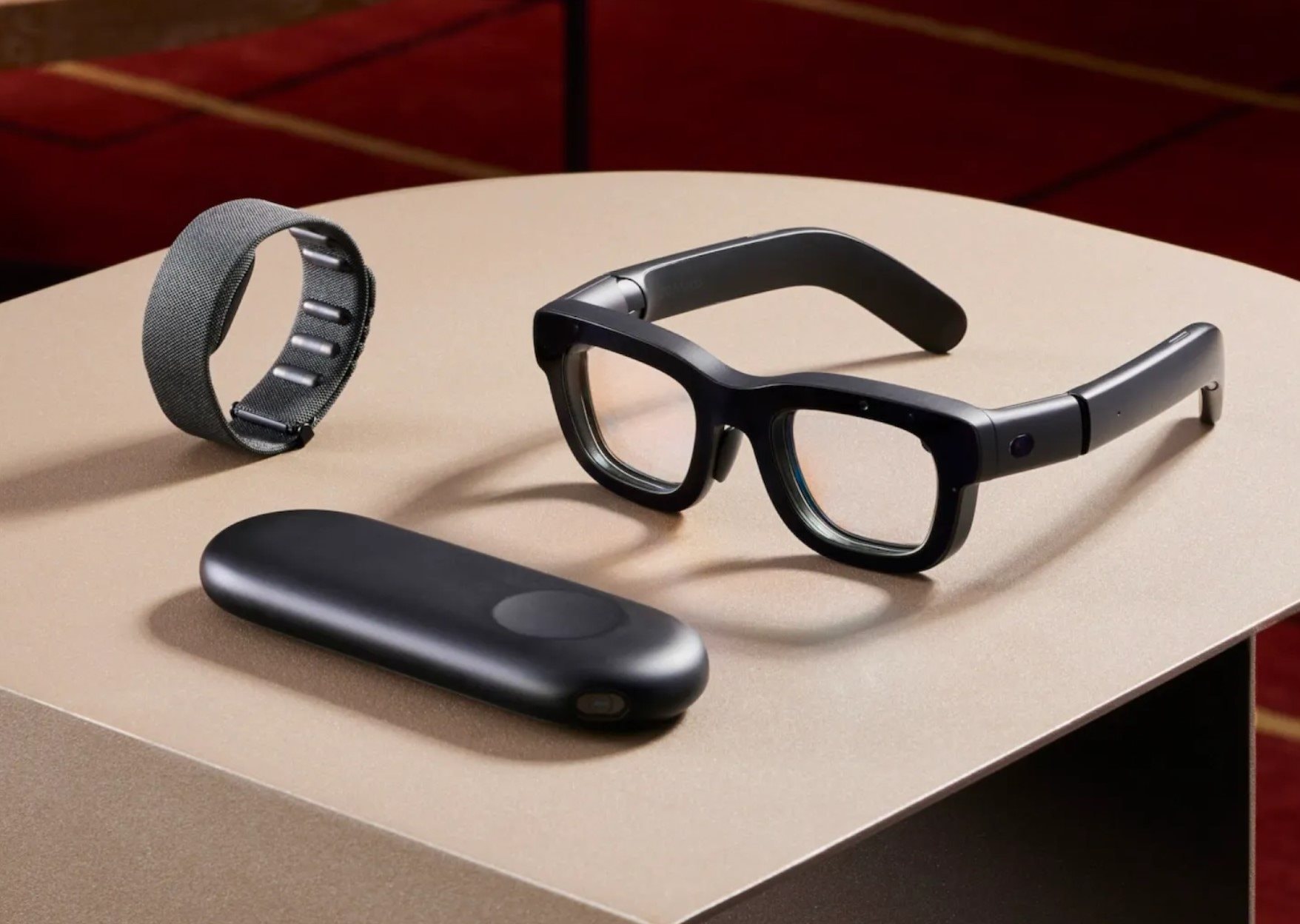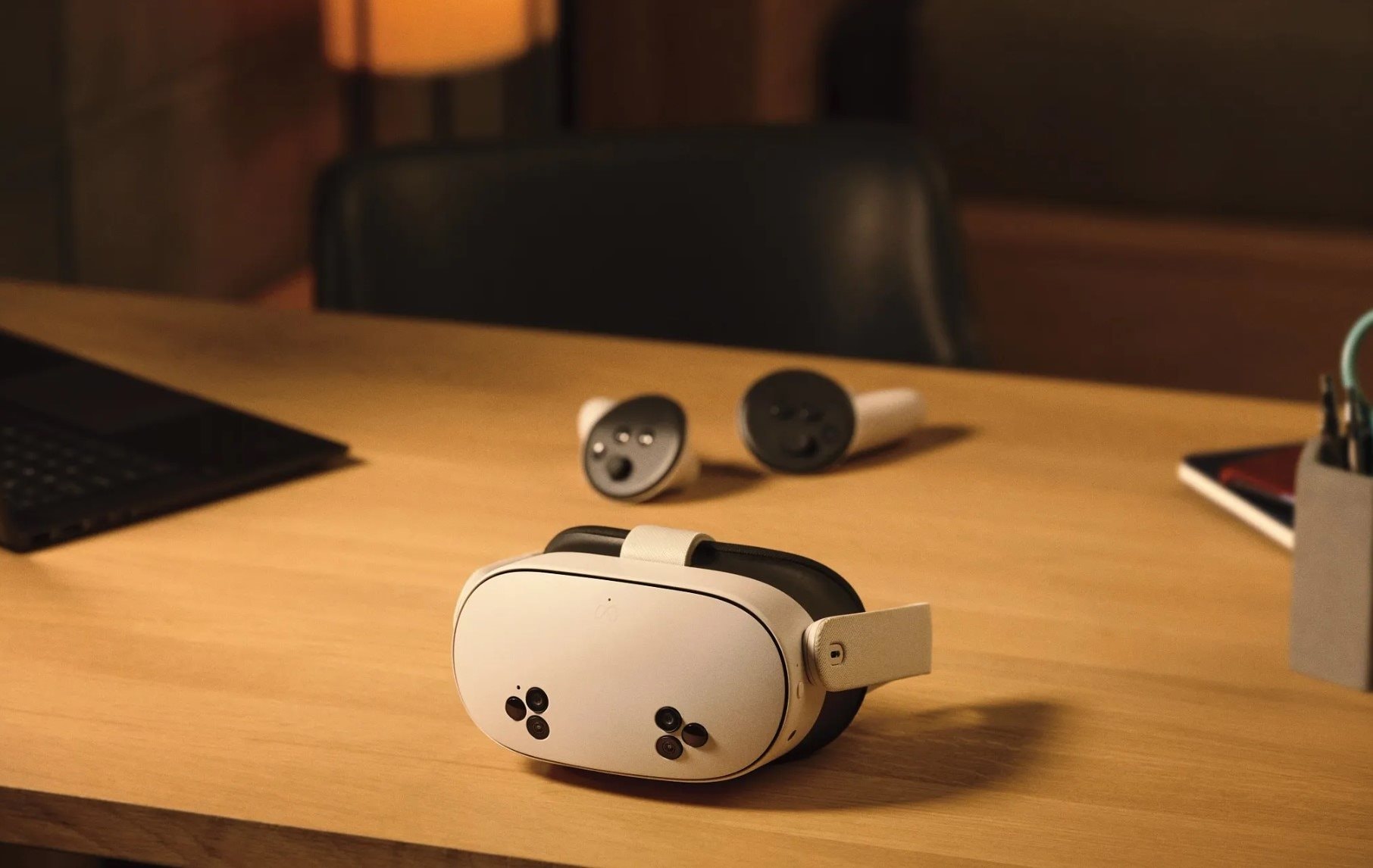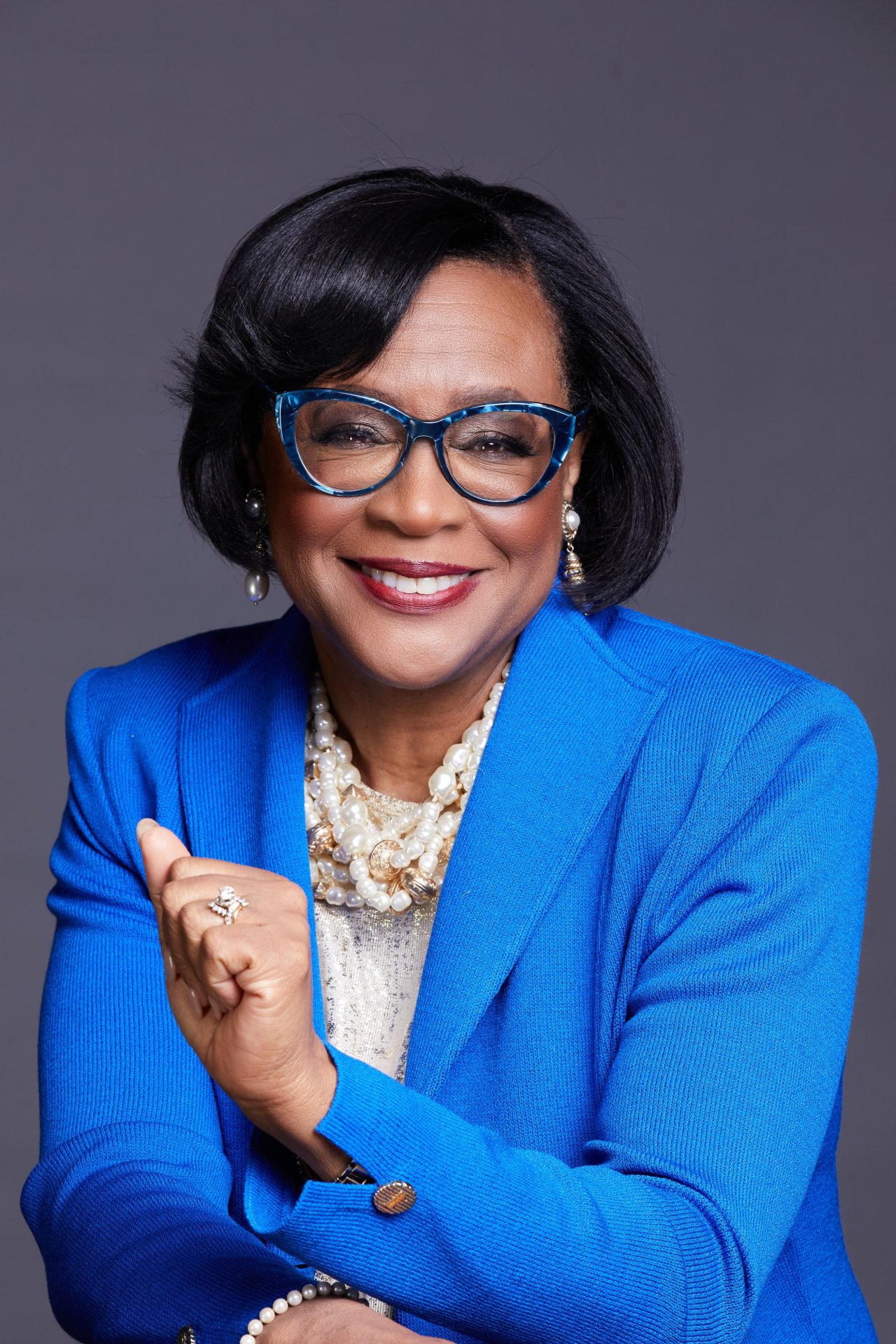Meta Platforms has unveiled the first prototype of its augmented reality (AR) glasses called Orion at its annual Connect conference, as parent company Facebook outlined its ambitions for products that will bring the virtual world into the real world.
“This is the physical world with 3D images overlaid on it,” Meta Platforms CEO Mark Zuckerberg said after dramatically pulling thick black glasses out of a metal case brought to him on stage.
“Right now, I think the right way to look at Orion is as a time machine. These glasses exist, they’re amazing, and they’re a glimpse into the future that I think is going to be really exciting,” said the 40-year-old American billionaire.
The Orion glasses are made of magnesium alloy and powered by a custom silicon chip designed by Meta Platforms. Users will be able to interact with the Orion glasses through hand tracking, voice, and a wrist-based neural interface. Mark Zuckerberg said Meta Platforms plans to make the Orion glasses smaller, sleeker, and more affordable before releasing them to consumers later.
 Meta Platforms’ Orion Glass Prototype
Meta Platforms’ Orion Glass Prototype
Major tech companies have been developing AR devices for years, but some notable products have failed, such as Google Glass.
Mark Zuckerberg positioned AR technology as a masterstroke as he pivoted the world’s largest social media company to building immersive metaverse systems by 2021. However, product delivery has been hampered by high development costs and technological hurdles.
Paolo Pescatore, an analyst at PP Foresight, said there was no doubt about Meta Platforms’ ambition to make virtual reality (VR) and AR products as accessible and affordable as possible. But he added that users “are still wary of AI” and need convincing.
Meta Platforms aims to deliver its first commercial AR glasses to consumers by 2027, when technical breakthroughs will help reduce manufacturing costs, a source said ahead of the event.
Mark Zuckerberg didn’t show off the Orion headset’s capabilities live during the Connect conference, instead showing a video showing how people reacted to the device as they tried it out. The video showed glimpses of text messages and images being displayed through the headset, with Nvidia CEO Jensen Huang prominently featured among the testers.

The closest thing to the Orion right now is the Ray-Ban Meta smart glasses, which initially got little attention but gained traction last year after Meta Platforms added an AI assistant. Facebook’s parent company announced AI improvements to the Ray-Ban Meta glasses this year, such as allowing users to scan QR codes and play music from Spotify in response to voice suggestions.
Later this year, Meta Platforms plans to add video creation and real-time language translation capabilities between English and French, Italian, or Spanish to Ray-Ban Meta glasses.
Mark Zuckerberg chatted live with MMA fighter Brandon Moreno (Mexico) to demonstrate the language tool, in which the glasses can translate from English to Spanish and vice versa.
At the Connect conference, Meta Platforms introduced new AI chatbot capabilities for its services and the new Quest mixed reality headset.
Additionally, Meta Platforms also introduced the Quest 3S, a lower-end version of its Quest mixed reality headset, starting at $300, while also cutting the price of the Quest 3 (which went on sale last year).
 Quest 3S starts at just $300 – Photo: Meta Platforms
Quest 3S starts at just $300 – Photo: Meta Platforms
Meta Platforms shares closed on September 25 (US time) at a record high of $568.31.
Spent tens of billions of dollars
At its Connect conference, Meta Platforms announced a slew of other new products for its chatbot and plans to start automatically pushing personalized images generated by the chatbot into people’s Facebook and Instagram feeds.
Among the new AI features announced is a voice upgrade for the Meta AI digital assistant. Meta AI will now respond to voice commands and give users the option to sound like celebrities like actress Judi Dench and legendary wrestler John Cena.
“I think voice is going to be a much more natural way to interact with AI than text,” Mark Zuckerberg said.
The company says more than 400 million people use Meta AI monthly, including 185 million who return weekly.
In line with its strategy of sharing its digital assistant-powered AI models for others to use for free, Meta has released three new versions of its Llama 3 models, but has not yet deployed them in the European Union (EU) due to regulations there.
Meta Platforms has invested tens of billions of dollars in AI, AR and other metaverse technologies, pushing the company’s capital expenditure forecast for 2024 to a record high of $37 billion to $40 billion.
Reality Labs, the metaverse unit of Meta Platforms, lost $8.3 billion in the first half of 2024, according to a recent report. In 2023, Reality Labs lost $16 billion.
Earlier in August, Mark Zuckerberg admitted that social media is actually quite “antisocial” and hopes that wearable tech will improve that.
In an interview with South Park Commons, a tech community in San Francisco, Mark Zuckerberg said that the way users experience social networks on small screens is limited. That is part of the reason why the 40-year-old American billionaire is pursuing Ray-Ban Meta smart glasses.
Meta Platforms owns Facebook, Instagram, WhatsApp and Threads, major social media platforms commonly accessed via smartphones
 .
.
Mark Zuckerberg feels that interacting through social apps on a small mobile phone screen can feel unnatural and disconnected. In some ways, it feels antisocial. He believes that smart glasses will provide a more natural and friendly approach to social connection and interaction.
Meta Platforms’ smart glasses allow wearers to take photos, go live on Instagram, and use an AI assistant to ask questions, among other features.
The headset doesn’t have VR capabilities like the Meta Quest, meaning users won’t see virtual screens pop up in their surroundings. But Mark Zuckerberg still believes the wearable technology will be well-received.
In an interview with Jensen Huang, Mark Zuckerberg said he believes millions of people will wear screen-less AI glasses.
“Based on what we’re seeing with the Ray-Ban Meta, I predict that screenless AI glasses at $300 will be a really big product that tens of millions or hundreds of millions of people will eventually own. You’ll have a powerful interactive experience with AI,” he said.

Mark Zuckerberg is now worth $202 billion, making him the world’s third-richest person. His fortune has increased by $74 billion to $202 billion this year, boosted by a more than 60% surge in Meta Platforms’ stock price since early January to an all-time high of more than $568.
Elon Musk (Tesla CEO), Jeff Bezos (Amazon founder) and Mark Zuckerberg are the three people with net worths of $200 billion or more, according to the Bloomberg Billionaires Index (Bloomberg’s billionaire ranking). Elon Musk is in the top spot with $270 billion, Jeff Bezos is in second place with $215 billion.





